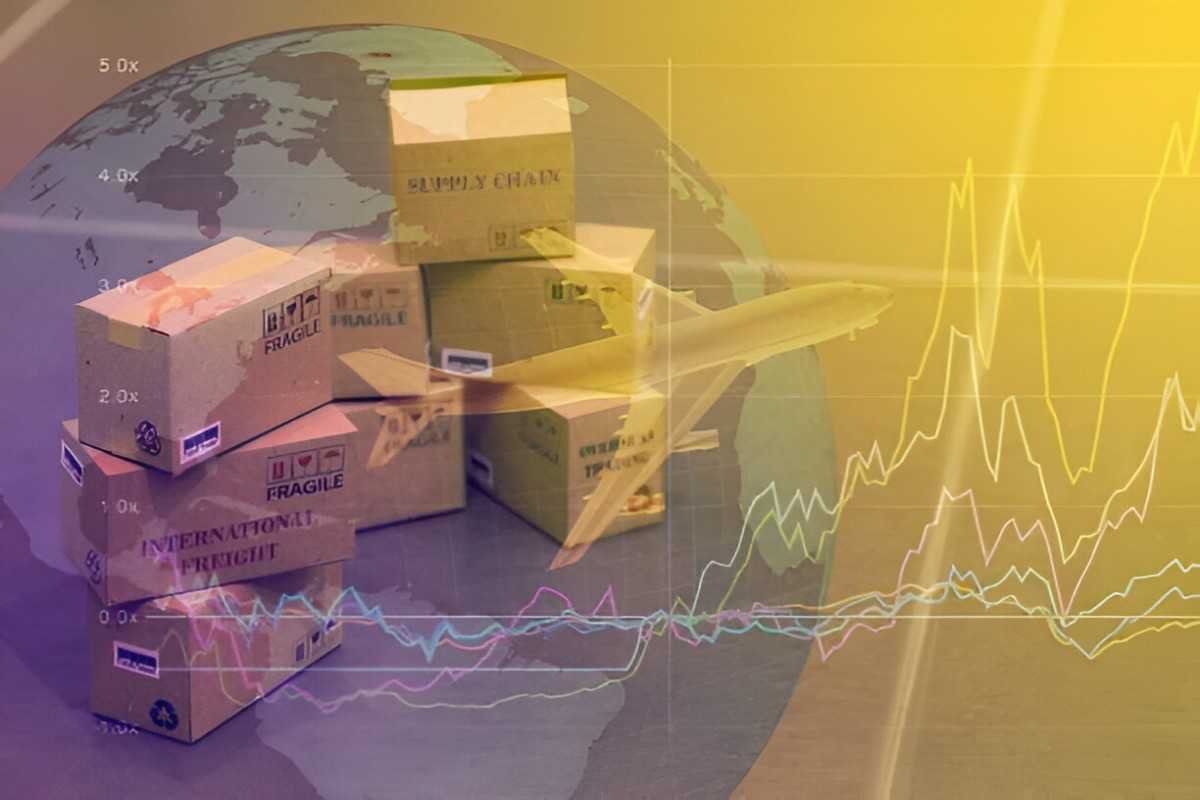In the world of international trade, logistics plays a crucial role in ensuring that goods move efficiently from the seller to the buyer. Among the key players in this complex web of global trade are shipping and forwarding agents. Their job goes far beyond just transporting goods; they ensure that products move smoothly across borders, meet regulatory requirements, and arrive safely at their destination. In this article, I will dive deep into the world of shipping and forwarding agents, exploring their role in logistics, the services they provide, and the impact they have on international trade.
Table of Contents
What are Shipping and Forwarding Agents?
Shipping and forwarding agents are intermediaries between the exporter and importer, facilitating the movement of goods between countries. These agents take on a variety of roles, handling everything from booking cargo space to ensuring that all necessary documentation is in order. They serve as a bridge between the manufacturer or seller and the logistics providers, ensuring the smooth flow of goods and information.
Shipping agents are responsible for managing the transportation of goods by sea, air, or land. On the other hand, forwarding agents primarily focus on organizing and coordinating the movement of goods between different transportation modes, helping importers and exporters navigate the complexities of international trade.
To better understand their roles, let’s break down the key functions that these agents serve in the logistics process.
The Role of Shipping Agents
Shipping agents specialize in the transportation aspect of logistics. Their responsibilities include:
- Booking Cargo: Shipping agents work with shipping lines to reserve space on vessels for cargo shipments. This requires negotiating freight rates and securing space in a timely manner to meet delivery deadlines.
- Coordinating Transport: Once cargo is booked, shipping agents ensure that the goods are transported efficiently. This includes managing the shipment from the point of origin to the destination port, selecting the appropriate shipping route, and optimizing transit times.
- Managing Documentation: Shipping agents ensure that all the necessary paperwork is in place for the shipment. This includes preparing bills of lading, cargo manifests, and customs declarations. Accurate documentation is essential for smooth clearance at customs and preventing delays.
- Port and Terminal Handling: Shipping agents liaise with port authorities and terminal operators to manage the loading and unloading of cargo. They ensure that goods are handled safely and efficiently, reducing the risk of damage during transit.
- Customs Clearance: Shipping agents ensure that all customs procedures are followed, helping goods clear customs without delays. They work closely with customs brokers to ensure compliance with local regulations.
- Delivery and Final Destination: After the goods arrive at the destination port, shipping agents arrange for the transportation of the goods to their final destination, whether it be a warehouse, retail store, or end customer.
The Role of Forwarding Agents
Forwarding agents focus on managing the logistics of moving goods across multiple transport modes. They play an essential role in the international supply chain by coordinating the various steps involved in transporting goods from one place to another. Forwarding agents typically offer the following services:
- Route Planning: Forwarding agents determine the best possible route for transporting goods based on factors like cost, time, and risk. They take into account the mode of transportation (sea, air, road, rail), regulatory requirements, and customer preferences.
- Multimodal Transport: Forwarding agents often coordinate shipments that involve multiple transport modes. For example, a container may be transported by sea from China to the US, then by truck from the port to a distribution center. Forwarding agents ensure that all legs of the journey are planned and executed smoothly.
- Documentation and Compliance: Forwarding agents assist in preparing the necessary documentation for international shipments. This includes export/import licenses, commercial invoices, packing lists, certificates of origin, and other required documents. They ensure that all documentation complies with local regulations to avoid delays.
- Consolidation and Deconsolidation: For small shipments, forwarding agents may consolidate goods from different shippers into a single container to optimize shipping costs. Once the shipment arrives at the destination, they deconsolidate the goods and ensure they are delivered to the correct recipients.
- Cargo Insurance: Forwarding agents often arrange cargo insurance to protect goods in transit. This insurance covers risks such as theft, damage, or loss during shipping. Forwarding agents help exporters and importers understand the coverage options and choose the best insurance plan.
- Warehousing and Distribution: In some cases, forwarding agents also handle warehousing and distribution. They may arrange for temporary storage of goods in bonded warehouses before they are shipped to their final destination.
Shipping and Forwarding Agents in the Supply Chain
Shipping and forwarding agents are integral components of the global supply chain. Without them, the movement of goods across borders would be significantly more complicated and inefficient. To understand their role better, let’s explore the logistics process from start to finish.
1. Preparation and Planning
Before a shipment is even booked, both the exporter and the importer need to plan the movement of goods. Shipping agents help exporters identify the best shipping method and route based on their specific needs. They will also discuss the documentation requirements and any specific shipping restrictions.
Forwarding agents step in once the shipment is ready to be moved. They assess the most cost-effective and efficient routes, coordinating the various modes of transportation involved. Whether it’s a full container load (FCL) or a less-than-container load (LCL), the forwarding agent determines the best solution for the shipment.
2. Booking Cargo and Freight
Once the shipping method is determined, the exporter contacts the shipping agent to book the cargo. The agent secures space on the vessel, air freight, or truck, ensuring that the shipment is booked according to the agreed-upon timeline.
For multimodal shipments, the forwarding agent ensures that all transport providers are lined up and that all relevant documentation is prepared in advance.
3. Transport and Handling
The goods are then transported according to the established plan. Shipping agents monitor the progress of the shipment, ensuring it is delivered on time and according to schedule. Forwarding agents, meanwhile, ensure that the goods are handled correctly and transferred seamlessly between different transport modes.
Throughout the process, both agents maintain constant communication with the relevant stakeholders, including customs authorities, port operators, and the importer or exporter.
4. Customs Clearance
Upon arrival at the destination port, shipping and forwarding agents work together to ensure that the shipment clears customs. This includes submitting the required documentation and paying any applicable duties and taxes. Forwarding agents often handle the paperwork on behalf of the importer to avoid any customs delays.
5. Final Delivery
Once the goods clear customs, the shipping agent arranges for the final delivery to the recipient. This may involve further transportation via road, rail, or air, depending on the destination. The forwarding agent helps ensure that the goods are delivered to the right address, often with the assistance of a local distributor or logistics provider.
Key Challenges Faced by Shipping and Forwarding Agents
While shipping and forwarding agents play a crucial role in logistics, they face several challenges that can impact the smooth flow of goods. These challenges include:
- Rising Fuel Costs: As fuel prices fluctuate, shipping and forwarding agents must constantly adjust their strategies to minimize costs. Rising fuel prices can lead to higher shipping costs, which ultimately affect the price of goods.
- Customs and Regulatory Changes: Different countries have different customs regulations, and these regulations are constantly changing. Shipping and forwarding agents must stay up to date on the latest rules and ensure compliance to avoid delays.
- Supply Chain Disruptions: Natural disasters, geopolitical tensions, and labor strikes can all disrupt supply chains. Shipping and forwarding agents need to be adaptable and have contingency plans in place to handle such disruptions.
- Security and Theft: Shipping agents must ensure that cargo is secure at all times, whether it’s at sea, in transit, or in a warehouse. Security breaches can lead to financial losses and damage to reputation.
- Technological Advancements: The logistics industry is rapidly evolving, and agents must adopt new technologies to remain competitive. From automation to digital platforms, shipping and forwarding agents need to embrace these innovations to streamline operations and improve customer satisfaction.
Mathematical Considerations in Shipping and Forwarding
The cost structure of shipping and forwarding services involves several components that need to be understood in detail. These include freight costs, insurance, customs duties, and handling charges. Let’s look at how these costs are calculated.
1. Freight Costs
The freight cost depends on several factors such as the weight of the cargo, the distance to be covered, the type of transport, and the cargo’s dimensions. For sea freight, the cost can be calculated using the following formula:
\text{Freight Cost} = \text{Cargo Weight} \times \text{Rate per Ton} + \text{Handling Charges}For example, if the cargo weighs 20 tons, the rate per ton is $100, and handling charges are $200:
\text{Freight Cost} = 20 \times 100 + 200 = 2200 , \text{USD}2. Customs Duties
Customs duties are based on the value of the goods being imported. The formula for calculating customs duties is:
\text{Customs Duty} = \text{Customs Duty Rate} \times \text{Value of Goods}If the customs duty rate is 10% and the value of goods is $50,000:
\text{Customs Duty} = 0.10 \times 50000 = 5000 , \text{USD}3. Insurance
The cost of insurance is typically calculated as a percentage of the cargo value. If the insurance rate is 1% and the value of the goods is $50,000, the insurance cost is:
\text{Insurance Cost} = 0.01 \times 50000 = 500 , \text{USD}Conclusion
Shipping and forwarding agents are indispensable to the global logistics system. They serve as facilitators of international trade, ensuring that goods move smoothly across borders and reach their destination in a timely and cost-effective manner. From booking cargo to clearing customs and handling deliveries, these agents play a critical role in the success of businesses engaged in international trade.





